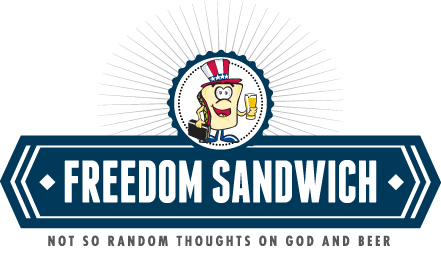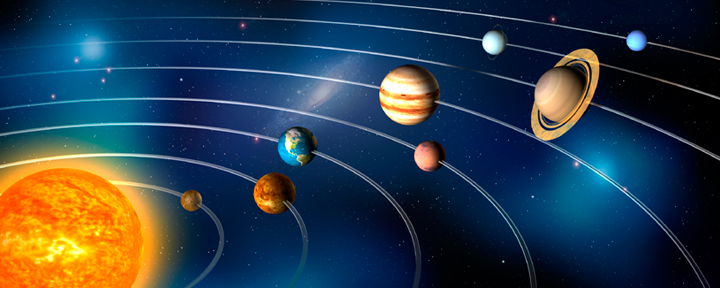Paper Mache Planets and Folk Music
True story.* When I was in elementary school, I made a paper mache model of the solar system for a science fair project. For those of you who don’t know, “paper mache” is actually French for “huge sticky mess.” It involves tearing up strips of paper, soaking them in a mixture of Elmer’s Glue and water until they are nearly dissolved and then wrapping them in layers around a form. In the case of my planets, these forms were styrofoam balls.
One might ask at this point, why didn’t you just paint the styrofoam balls as planets instead of going to all that effort with the paper mache? Well, the answer is that it was an early example of the fact that I seem to like to do things the hard way. And in fact, once I decide I want to do something one way, I’m pretty bull headed. But enough about me.
My brilliantly produced model of the solar system, was made up of a large piece of black poster board to which I attached the Sun at the center, circled by nine planets of various sizes and colors.
I learned a lot from making this model. First and most importantly, that I was much more likely to have a career in the arts than I was the sciences. Second, the sun wasn’t always considered the center of the solar system. In fact, for most of human history the Earth was considered the center of the universe. The Sun, it was thought, revolved around the Earth.
It wasn’t until the 16th Century that Nicolaus Copernicus formulated a heliocentric (fancy word for “Sun centered”) model of the universe.
This was of course revolutionary and quite controversial at the time and, as it was ultimately proven correct, brings up two great points.
1. Prevailing wisdom isn’t always accurate.*
2. One person thinking outside the box can make a huge difference in the world.
While these are great points, questioning authority and the power of the individual aren’t what I’m here to talk about. I’m here to talk about Einstein’s general theory of relativity and Newton’s law of universal gravitation. Two subjects I knew nothing about in elementary school.
Einstein’s theory states that: the phenomenon of gravitation itself is a consequence of the curvature of spacetime governing the motion of inertial objects.
Newton’s law postulates: the gravitational force proportional to masses of interacting bodies and inversely proportional to the square of the distance between them.
It should be pointed out that I’m not a physicist, but I did stay at a Holiday Inn Express last night.** So, more simply put:
Things are affected by other things around them.
You see, the Earth is held in its orbit by the gravitational pull of the Sun. The Earth, while a completely separate entity, capable of spinning on its axis, controlling complicated weather systems, providing shelter to its inhabitants, etc. is nevertheless controlled to a large extent by outside forces.
We’re a lot like the Earth, affected a great deal by forces outside our control.
As rational human beings, we spend a lot of time reflecting on and attempting to understand those forces. Each of us, if asked, could probably describe those things that are at the center of our universe. Those things that affect our lives.
God
Work
Money
Bills
Spouse
Children
Addiction
Pain
What is at the center of your universe?
Last week I went to a concert by my favorite songwriter Josh Ritter. Josh has a song called Orbital in which he discusses these very same themes. The chorus goes like this:
Who do you circle round
Who is it circles round you
Is it circles round you?
Who is it circles round you
Do you circle round who
Is it circles round you?
While we spend a lot of time studying, and one might even say worshiping those things at the center of our universe. Those things we circle around. I think sometimes the more important question is:
Who is it that circles around us?
What are we doing to affect, in a positive way, those people? Are our actions filled with love? Compassion? Empathy? Do we even notice all the different people that are affected by us each day in ways large and small?
So, today, may we realize that we aren’t the center of our own universe. And, if that center isn’t something positive, if it isn’t uplifting, if it isn’t giving us life, may we have the courage to let it go. Because, unlike the Earth, we have a choice in what we circle around. But perhaps more importantly, may we stop to notice all the different people that circle around us, or circle around with us, each day. May we see their struggles and needs. And may our actions bring them joy, and peace and life.
_____________________________
*Prevailing wisdom it seems was wrong about one other thing. At the time I made my model of the solar system, Pluto was still considered the ninth major planet. It is now considered a “dwarf planet.” Harsh. What will scientists say isn’t real next? Sasquatch? The Loch Ness Monster? That the eight cheeseburgers I eat each week are bad for me?
**I didn’t actually stay at a Holiday Inn Express last night.


Leave a Reply